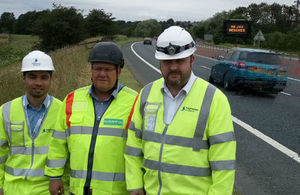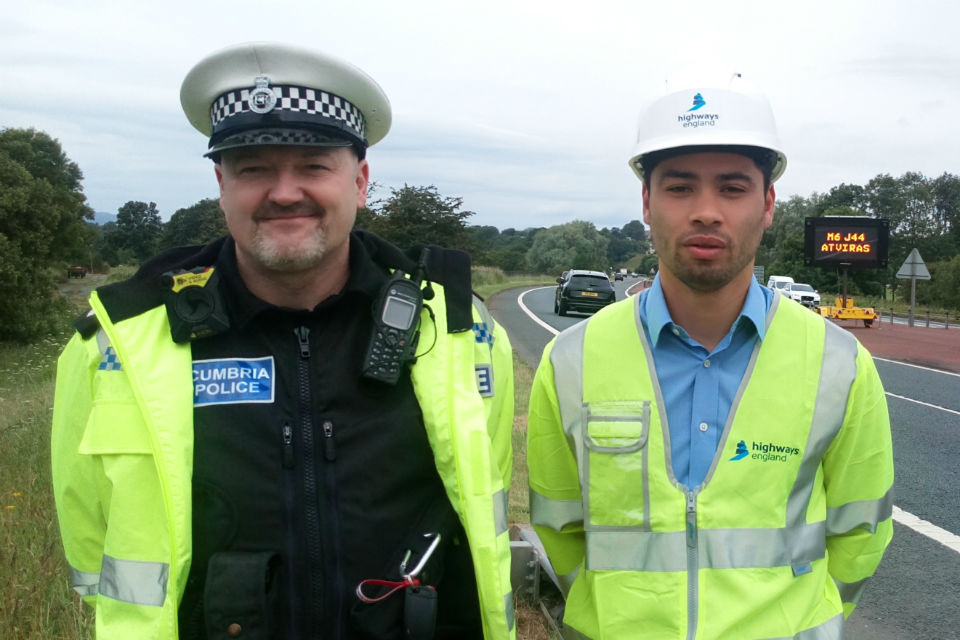It’s great to back in the beating heart of the City. Particularly, as I understand, you’ve been discussing my favourite subject today: the future.
Now, the truth is, none of us know exactly what the future will hold. Yet, it’s clear from this event, from the number of people, and the range of people, that you all believe in backing Britain after Brexit.
But, whoever our next Prime Minister is, the task before us is going to be same: building a Britain that’s match-fit for the 2020s.
Delivering Brexit and then moving on to the things that are bigger than Brexit:
Tackling low pay, supporting enterprise, combating climate change, building new housing, and ensuring our health service will still be world-class, and will still be there for all of us, for generations to come.
And the biggest battle we face in the 2020s is ensuring everyone feels the benefits of free enterprise and economic growth.
So, for me, making sure that Britain remains at the forefront of healthtech, biotech, genomics, AI, scientific research, and healthcare innovation, isn’t just about ensuring we have a world-class NHS – as important as that is.
It isn’t just about ensuring we have a strong economy – as important as that is.
It’s about making sure that Britain wins the 4th Industrial Revolution. That we create the high-skilled, well-paid, tech jobs of tomorrow here. That British businesses shape the technology of tomorrow, and British values drive progress for the benefit of everyone.
And, I believe, one of the ways we do that, is by embracing innovation in healthcare.
By opening up our health service to innovators, wherever we may find them: business, academia, or from anywhere around the world.
Create more porous borders into the NHS for people with new ideas and a shared mission to make things better.
And I’m delighted that today we’re officially launching a new collaboration between the NHS and Amazon, pairing our expert medical advice with their market-leading Alexa device.
So when sick people need medical information, the information they’ll receive will be NHS information: accurate, reliable, safe. And this will particularly benefit people who rely on voice-activated tech because they struggle with other devices – elderly people, blind and visually impaired people.
We all know that Dr Internet can potentially misdiagnose a minor ailment as something terminal, but what about the converse? What if something serious is missed because someone relied on a dubious medical source?
What this new collaboration means is that Alexa’s algorithms will use medically verified information from the NHS to answer medical questions and provide guidance.
It means people will know when they should see their GP or go to A&E. And when, and how, they can treat common illnesses with the help of a pharmacist.
This collaboration will empower people to take greater control of their own healthcare, and reduce the pressures on the NHS.
And I want to see us build similar relationships with Google, Apple and anyone else who is building the tech that people use and rely on every day.
Because we have a unique opportunity in the NHS to leverage the expertise ‒ and sheer size ‒ of the world’s largest healthcare system to become the biggest driver of healthcare innovation in the world.
We have the capability to help healthtech companies access the finance they need to spur innovation by being involved from the beginning: by specifying what we need for therapeutics, diagnostics, devices and digital management.
By becoming early adopters of tried and tested new tools and technologies in the NHS, we can help British healthtech firms and life sciences companies develop their products faster and bring the benefits to patients and staff sooner.
The future of the NHS, the future of healthcare as a whole, is shifting from a focus on treating illness to preventing illness, of maintaining good health through prediction and early intervention.
We know what the future health challenges are going to be: an ageing population with multiple conditions, with more cases of cancer and maybe dementia because of our success in helping people to live longer.
The real challenge is actually an innovation challenge: can we get the breakthroughs the NHS needs to meet the future health needs of our nation?
Well, Britain is home to some of the world’s most innovative healthtech companies. British research institutions and life sciences are among the best in the world.
And, Britain is a place that’s always been open to the world’s best ‒ and will continue to be in the future.
The revolution in genetic sequencing came from companies such as Oxford Nanopore and Illumina.
Breakthroughs in cancer immunotherapy and early diagnostics are being driven by mid-size companies where investors are willing to take big risks in exchange for the rewards that might follow.
The NHS is relying on these companies to drive innovation in healthcare. And we, as a society, desperately need these companies to succeed.
So what can the NHS do to support innovation?
Well, we’re going to do what the world’s best tech firms do.
NHSX, our new tech lead, launched last week and it’s going to take the same approach to innovation that Apple and Google do.
NHSX is going to make the NHS a platform for innovation. It will simplify the system for developers and NHS decision-makers. It will set national policy and national standards, ensure systems can talk to each other.
But then it’s going to take a step back and let the innovators innovate. Because the NHS, historically, has either been too closed to innovation from outside, or tried to drive innovation from the inside – with mixed results at best.
Partly, that’s because new tech has driven up costs, but digital tech can save costs, and make money go further.
So we’re not going to imitate the 10-year cycle of creating and testing a drug, which rightly adheres to the precautionary principle. Instead we’re going to try the tech approach: collaboration, iterative development, testing and learning in real-world settings.
The NHS is going to move to a ‘demand-led’ innovation system.
NHSX is bringing together all of our tech leadership into one place, and the Accelerated Access Collaborative (AAC) is identifying what the NHS needs, and supporting new innovations with potential for nationwide roll-out.
The first 12 products being backed by the AAC could help more than half a million patients, and save the NHS up to £30 million.
But this is just a mere drop in the ocean. In the future, the NHS will be working in an ecosystem where driving innovation and saving taxpayers’ money will go hand-in-hand.
The NHS will play a much bigger role in the development of new healthcare innovations.
I see a future in which every patient has the chance to have their genome sequenced, and every treatment can be improved by understanding each patient’s genetic code.
Genomics will help us predict the likelihood of disease and enable targeted treatment and precision medicine.
Artificial Intelligence and machine learning will improve diagnosis and population-based risk assessment.
And there’s other exciting technologies that hold so much potential: surgical robots, stem cell therapies, 3D bio-printing, artificial organs, and other new drugs and new treatments that are set to transform healthcare over the coming years.
I want the NHS to be a world leader in these technologies. I want us to seek out new partnerships with new innovators who share our mission.
Because, ultimately, this isn’t just about the future of healthcare, or the future of our health service, but the future of our country.
What kind of country do we want to be? I believe we’re at our best when we’re open to the outside world, and optimistic about the future.
We’re at our best when we back people.
It’s why I’ve made it my mission to get the right tech in the NHS. So we can back our NHS staff in the life-saving work they do every day, and so we can back everyone in Britain to seize the opportunities good health brings.
And as investors, that’s what you do: backing a business is about backing people.
Because what else is a business, but people coming together to create a solution to other people’s problems? And solving the problem so well that people are prepared to pay you for the effort.
So let’s back innovators, let’s back our NHS and let’s back Britain so we can keep leading the world in healthcare.


